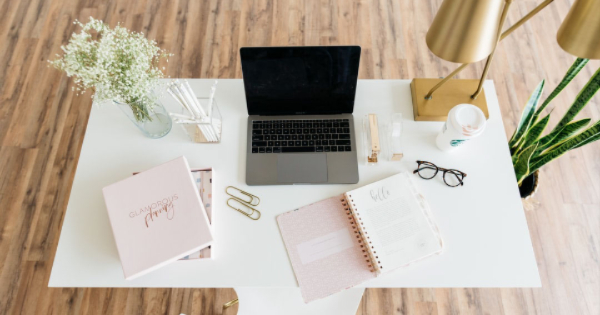A self-starter needs a place to work, especially if their small business will start at home. In fact, estimates show that almost 70% of start-ups will begin from the comfort of an entrepreneur’s home. On top of that, over 5% of Americans work for an employer remotely. If you’re one of the many Americans with a big dream to chase, establishing a functional home office is your first step to making your visions become a reality.
For many self-starters, working from home is ideal. But if you don’t have a dedicated workspace, your big dreams can quickly turn to nightmares. Even though your couch seems like a good enough spot to set up shop, blurring the lines between work and pleasure can lead to near-constant stress. Without a doubt, home offices and other dedicated workspaces can help bolster productivity when you need it most. Here are some of the top tips to consider when you’re ready to craft the perfect home office:
Select a great space
Creating the perfect office starts with defining the perfect space. Your ideal office should have plenty of natural light to keep you awake throughout the day and a sizable space to spread out your work. There are few things worse than working in a cramped, dark office space. While waterproofing your basement is a good start to establishing a solid renovation project, you’re better off selecting an open area in your home, like the space in front of a window, to encourage productivity.
Many self-starters have also found luck when they paint their new workplace. Not only does this symbolize a new beginning for your professional career, but it can also be a great way to boost your mood when you’re stressed. Studies show that painting a room light blue or purple will induce a calming effect while painting a room red will trigger feelings of nervousness. Try to pick paints with cooler undertones to encourage feelings of relaxation instead of worry. And don’t stress out if touch-ups are needed later; cans of paint typically stay fresh for three to five years after they are opened.
Invest in the right equipment
Again, it can be tempting to work right from your couch or bed, but establishing a working office space requires some necessary pieces of equipment. As you start to make a list of the supplies and furniture you need, consider these basics to start:
- A desk
- A lamp for good lighting
- A comfortable chair (preferably ergonomic)
- A calendar to track important appointments
- Noise-canceling headphones
You’d be surprised at how far these simple items can go. As you begin to look at some of your ideal office supplies, remember your home’s measurements. You don’t want to buy the perfect desk only to have to return it later because it’s too big for your apartment.
Above all else, stay organized
You might think that filing cabinets are only used by doctors and lawyers, but this couldn’t be further from the truth. The average home office can always benefit from organizational tools, including filing cabinets, binders, and a paper shredder. As a young professional, keeping your ducks in a row is necessary to streamline your efficiency. In fact, it’s estimated that up to 30% of consumers fail to properly dispose of documents containing important information. When you’re running a business from your home, concealing or shredding important information is one of the most important things you can do.
Between meetings, projects, and important paperwork, these small tools go a long way in improving your daily routine. Shred documents to keep them from piling up and don’t forget to use your label maker if you’re drowning under a pile of paperwork. Many people have managed to save space by investing or building desks with built-in drawers and shelves.
Working from home also demands that you keep your finances in order, especially when it comes to paying your taxes. In many states, working from home can serve as a tax-deductible expense when you consider your monthly rent payments and other bills. It’s no wonder that the average American overpays on their taxes by up to 35%. While you can learn more online, relying on a tax advisor can help you hash out the ins and outs of working from home and your expenses. Just be sure to keep track of all your important paperwork so you can get these essential benefits.
And remember to stay positive
Every self-starter can experience doubts, especially if building their home office takes longer than usual. It’s important to keep in mind that small homes projects typically take about 12 weeks to complete. As you’re crafting the perfect home office, don’t get down on yourself if it takes longer than you think. After all, Rome wasn’t built in a day. Creating a space that can accommodate your needs will be worth it in the end, even if it takes a few extra weeks to complete.



